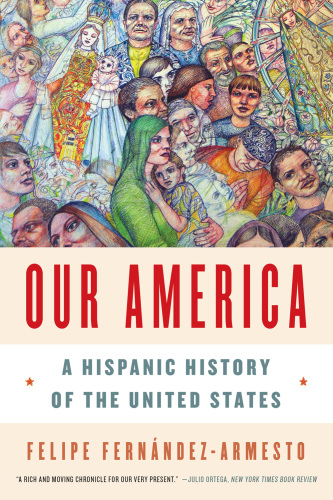

Most ebook files are in PDF format, so you can easily read them using various software such as Foxit Reader or directly on the Google Chrome browser.
Some ebook files are released by publishers in other formats such as .awz, .mobi, .epub, .fb2, etc. You may need to install specific software to read these formats on mobile/PC, such as Calibre.
Please read the tutorial at this link: https://ebookbell.com/faq
We offer FREE conversion to the popular formats you request; however, this may take some time. Therefore, right after payment, please email us, and we will try to provide the service as quickly as possible.
For some exceptional file formats or broken links (if any), please refrain from opening any disputes. Instead, email us first, and we will try to assist within a maximum of 6 hours.
EbookBell Team

4.7
56 reviewsAn eminent scholar finds a new American history in the Hispanic past of our diverse nation.
The United States is still typically conceived of as an offshoot of England, with our history unfolding east to west beginning with the first English settlers in Jamestown. This view overlooks the significance of America’s Hispanic past. With the profile of the United States increasingly Hispanic, the importance of recovering the Hispanic dimension to our national story has never been greater.This absorbing narrative begins with the explorers and conquistadores who planted Spain’s first colonies in Puerto Rico, Florida, and the Southwest. Missionaries and rancheros carry Spain’s expansive impulse into the late eighteenth century, settling California, mapping the American interior to the Rockies, and charting the Pacific coast. During the nineteenth century Anglo-America expands west under the banner of “Manifest Destiny” and consolidates control through war with Mexico. In the Hispanic resurgence that follows, it is the peoples of Latin America who overspread the continent, from the Hispanic heartland in the West to major cities such as Chicago, Miami, New York, and Boston. The United States clearly has a Hispanic present and future.
And here is its Hispanic past, presented with characteristic insight and wit by one of our greatest historians.